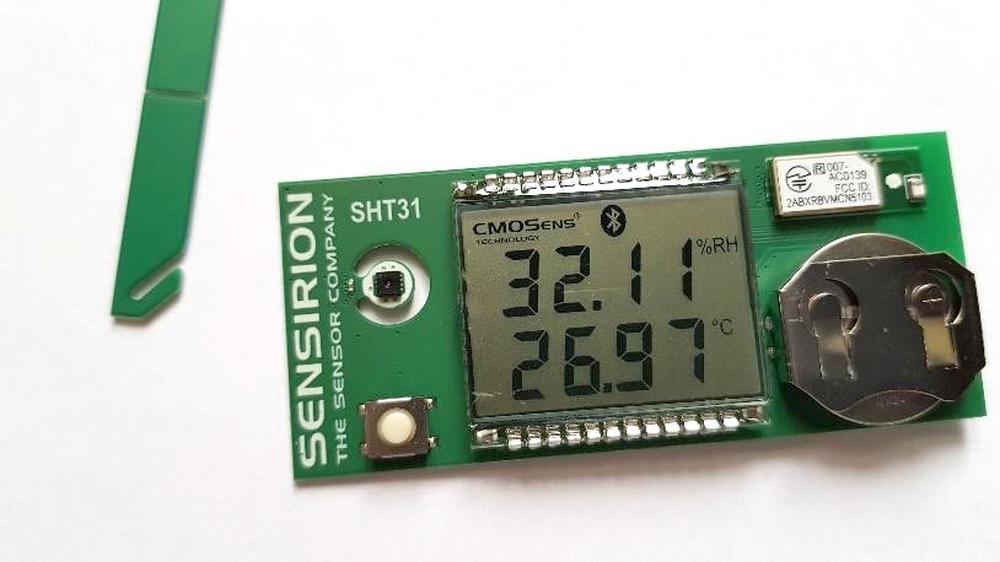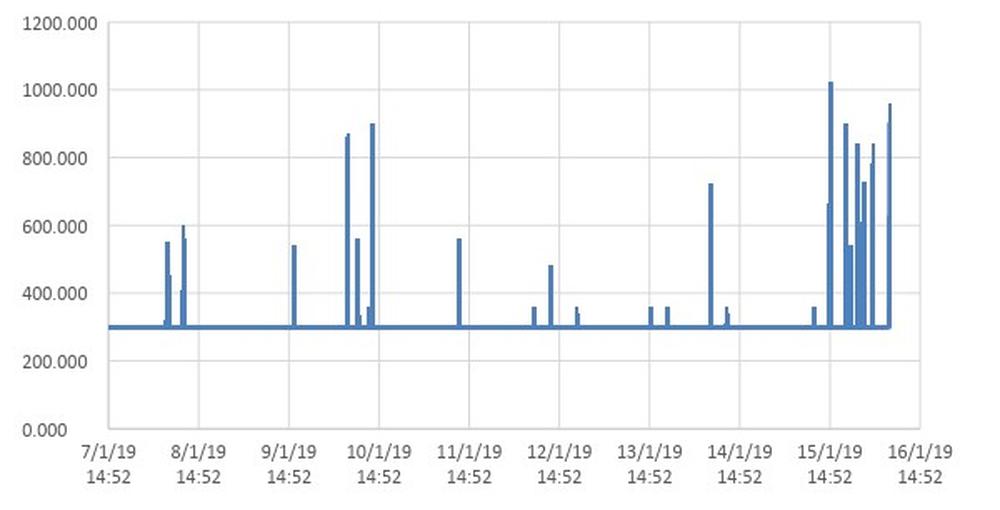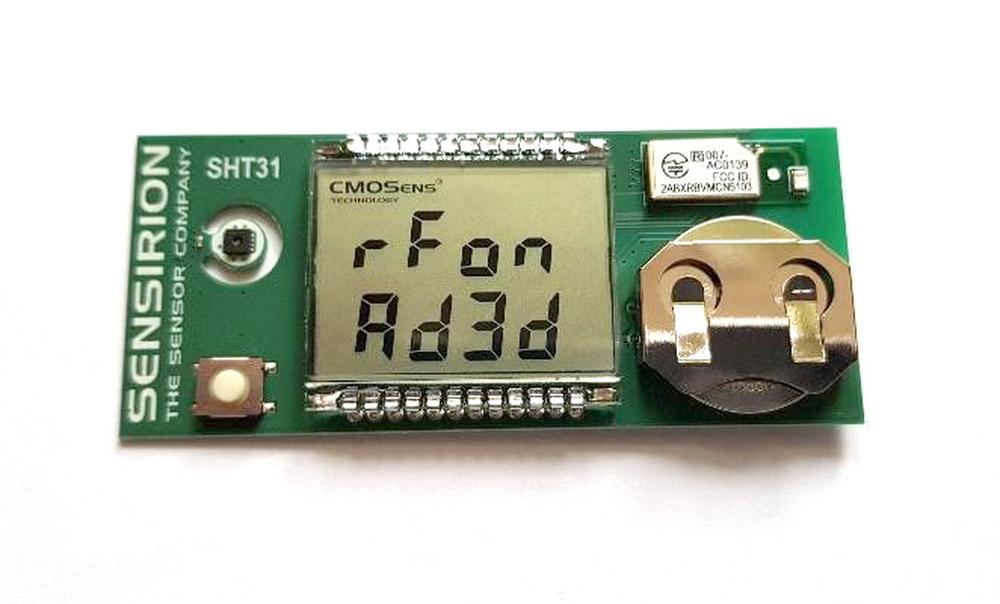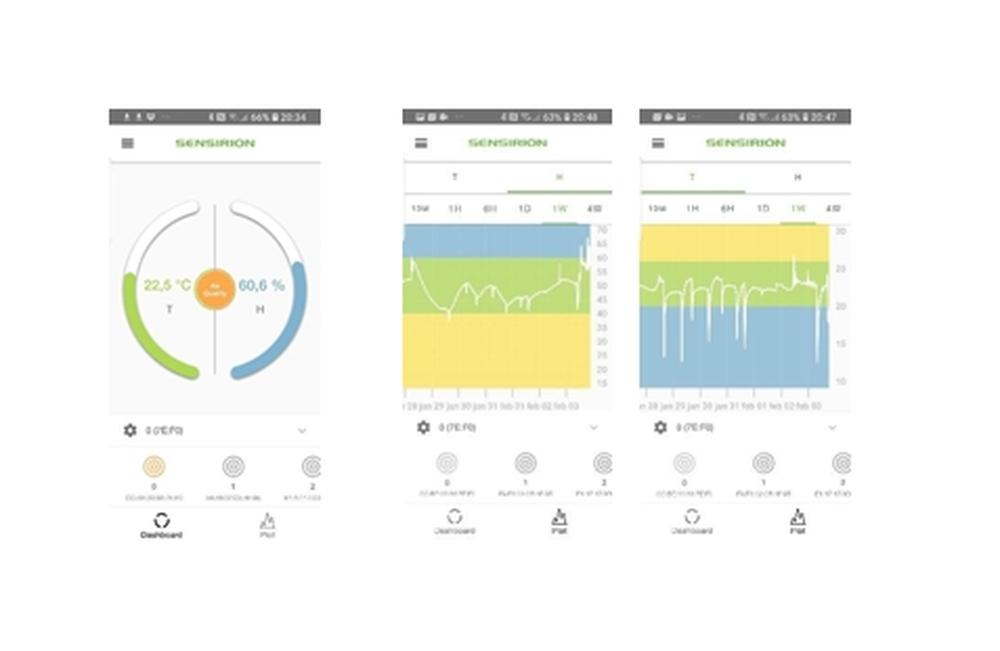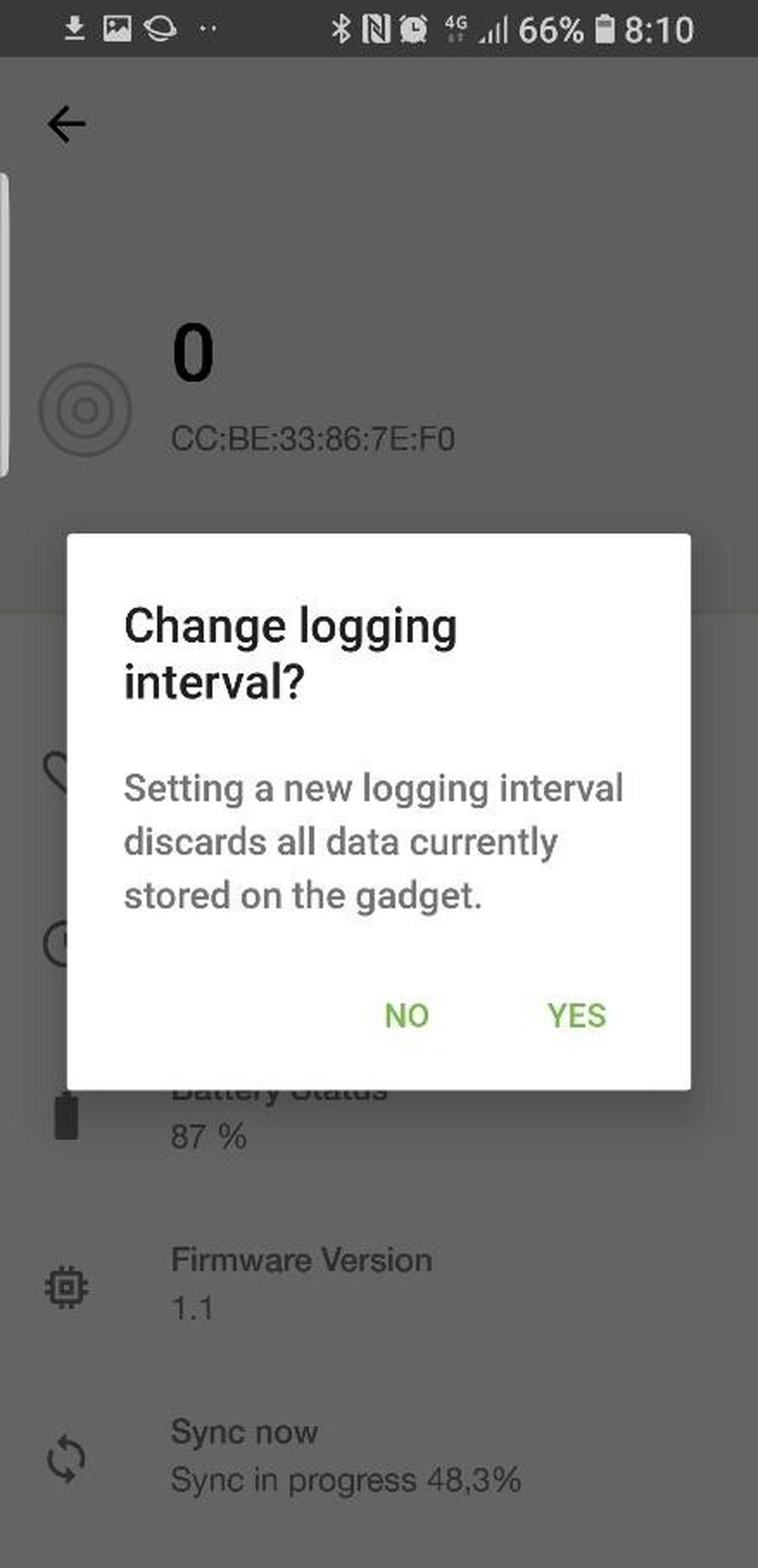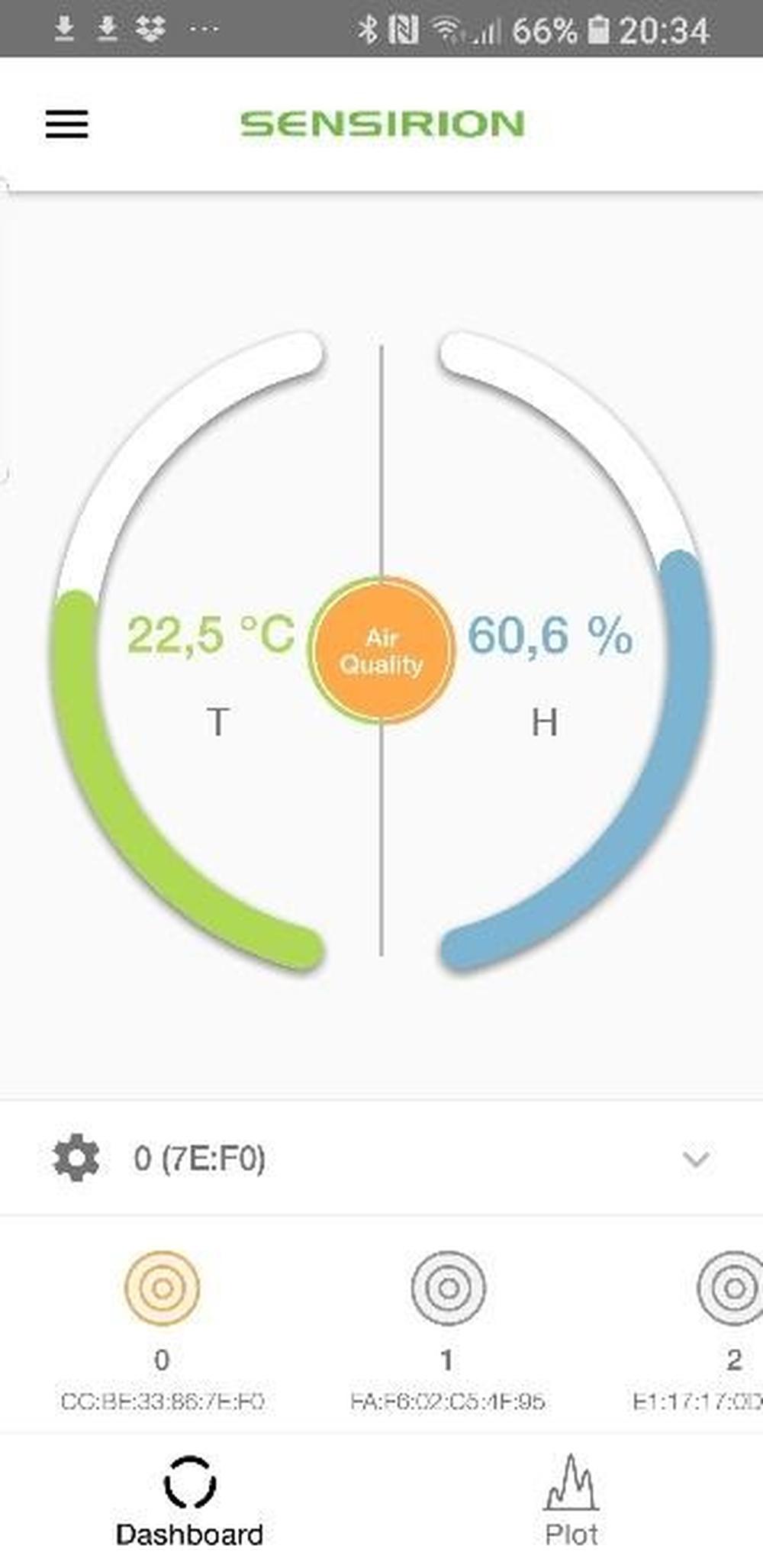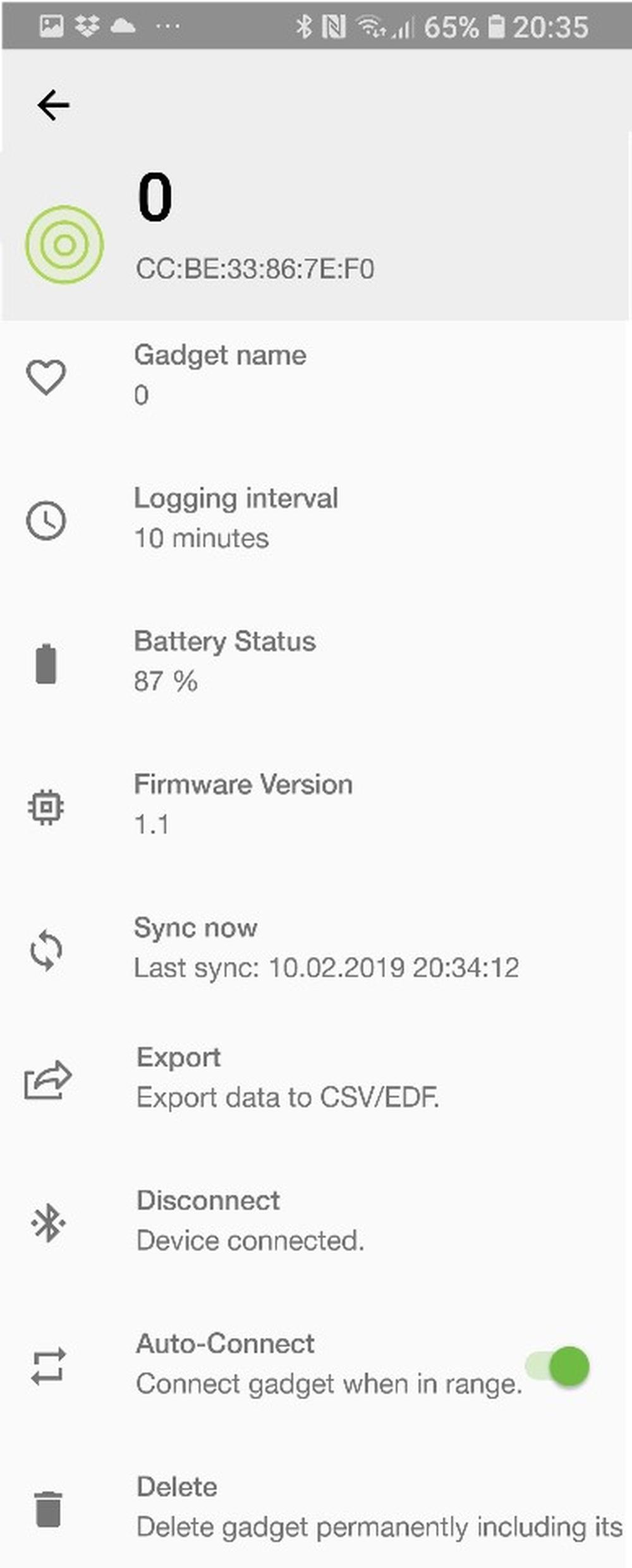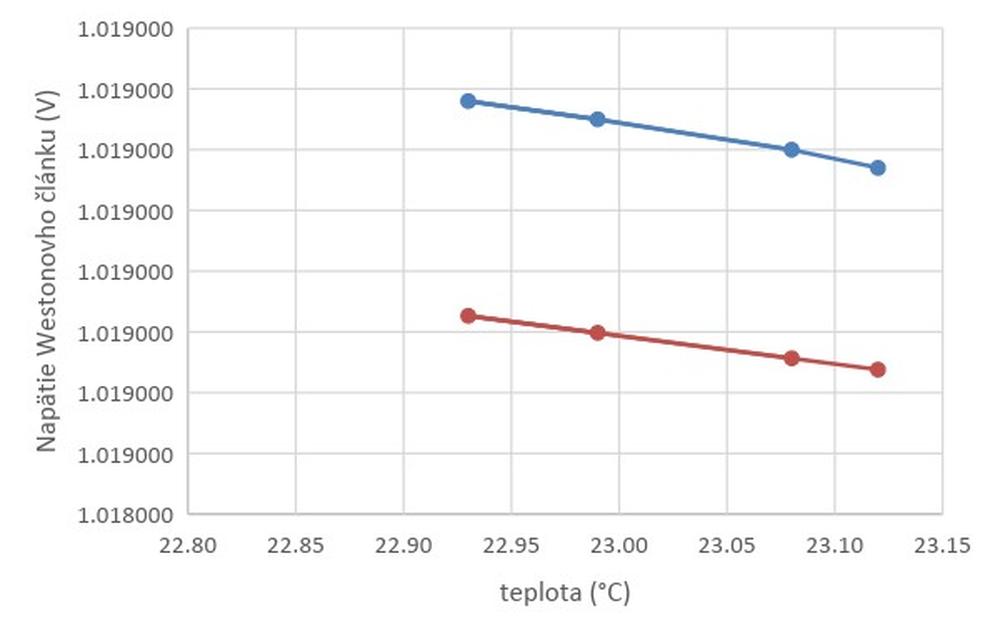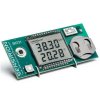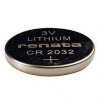In metrological practice, depending on the type of measurement, it is sometimes necessary to monitor the ambient temperature. If measurements are not performed under laboratory conditions, the temperature is the influence that can contribute to the uncertainty of the measurement result. How, however, do you get an overview of temperature changes?
There are several options - from expansion thermometers, through cheap handheld multimeters with temperature sensors, non-contact temperature meters, to expensive benchtop multimeters with a choice of several types of temperature sensors.
Of course, the choice of the measuring instrument is based on the range of measured temperatures and measurement accuracy requirements. Considering the need to transfer the measured data to PC, the expansion thermometers and handheld multimeters are left out.
The accuracy of measurements with handheld multimeters with temperature sensor ranges from 0.8% to 2% + 3 to 10 least significant digits with a fairly common resolution of 1 °C. Better resolution offers, for example, multimeter MS 8209 (0.1 °C), but with an accuracy of 2% + 1 °C. The cost of such a device can be up to € 100. The accuracy of non-contact measuring instruments is lower, but they provide a larger range of measured temperatures. Such devices are available for price up to € 200.
Benchtop multimeter, e.g. Rigol 3068 (6 ½ digits) allows the transfer of measured data to a PC via LAN, GPIB and RS232 with the ability to store data on USB (up to 5000 samples). The measurement error ranges from 0.08 °C to 0.6 °C depending on the sensor used. However, this is a more expensive solution because the price of the multimeter and temperature sensor may exceed 1000 €.
However, Sensirion offers an interesting solution for measuring temperature and humidity at a very good price - SHT31 SMART GADGET. More information can be found in our article Speed-Up your Development with SHT31 Humidity and Temperature Sensor.
SHT31 SMART GADGET
The SHT31 Smart Gadget is supplied in a small green box (typical Sensirion colour), which includes brief manual, brackets (need to break), and the device itself. The device at this stage is not yet ready for use.
When you pull out the insulation film under the battery CR 2032, measurement begins. What may surprise you when you first time look at the device display is that both data (humidity and temperature) are displayed to two decimal places.
However, the back of the printed circuit board includes, among other things, the following information: Typ. accuracy: ± 2% RH, ± 0.3 °C
The sensor measures the temperature in the range of -10 °C to 60 °C. With regard to the declared accuracy of the temperature measurement of ± 0.3 °C, it could appear that the hundredths are only the marketing trick. As it turns out later, the reality is different.
The fact that it is a really sensitive sensor proves the change of both measured variables with a light wave of hands. In addition, from the above page or from the manual, it is possible to find out that the SHT31 Smart Gadget is capable of communicating with a mobile phone via Bluetooth 4.0 using the Sensirion MyAmbience app available on Google Play. The application requires Android 4.3 and iOS 8 or newer. In addition, from the start of the measurement, the measured data are automatically stored in the device memory. The default storage interval is 10 minutes.
Application Sensirion MyAmbience
To communicate with your mobile phone via Bluetooth, you need to hold the white button at the bottom left down until the display shows "⌐hon" and the last 4 characters of the MAC address on the bottom line.
After launching the MyAmbience app, a launcher screen with + Add new device icon appears on the mobile phone display. When you click on it, the device is detected and the current measured values of temperature and relative humidity are displayed after pressing Connect.
The image below shows the Dashboard screen with detected devices.
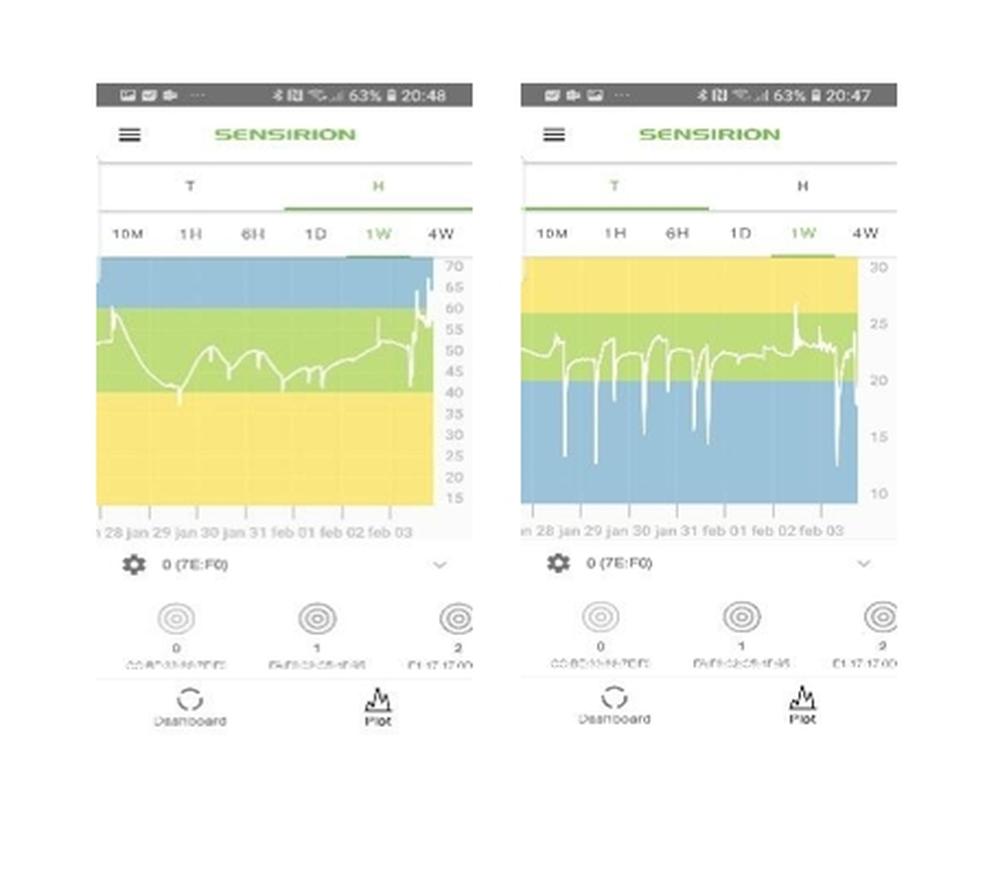
The measured values can also be exported in a Microsoft Excel-compatible format using the Export function. When you click on the setting icon (gray sprocket), the menu appears where:
- Gadget name – allows you to change the device name. We have previously chosen the name: 0,
- Logging interval – offers a choice of measuring interval 1s, 10s, 1 min, 5 min, 10 min, 1 h, 3 hrs.
- Battery Status – shows battery status in %,
- Firmware version – shows current firmware version,
- Sync now – indicates the date and time of the last synchronization of the mobile device with the device,
- Export – allows export of measured values,
- Connect – allows the device to connect to SHT31 Smart Gadget,
- Auto-Connect – if the gadget is within reach of BT, it automatically connects it via BT to the mobile phone,
- Delete – removes the current device from the device list.
Measured values export
Measured temperature and relative humidity data can be exported as two text files in the email attachment. Files have an * .edf extension. The header takes up the first five rows. Measured data begins at the sixth line with UNIX time (Epoch time) in the first column and measured values in the second column.
An example of the first ten lines of the exported file with the measured temperature:
# Date=2019-02-0T21:28:51Z
# EdfVersion=4.1
# SensorId=CCBE33867EF0
# unit=s,Type=float / unit=degC,Type=float
Epoch_UTC T_SHT
1546864598,354 / 22.97
1546864946,938 / 22.99
1546865284,134 / 23.01
1546865618,475 / 23.07
1546865957,944 / 23.07
UNIX time is the number of seconds that have passed from 00:00:00 01/01/1970 UTC. To convert it to standard date time format Excel formula bellow can be used.
(UNIX time/86400)+DATE (1970; 1; 1)
UNIX time 1546864598,354 after conversion gives us: 43472,525. To display correct date and time in excel it is necessary set cell format to d.m.yyyy h:mm:ss,000. Result will then be: 7.1.2019 12:36:38,354.
Visualization of measured values
After exporting from the gadget (up to 17,000 measurements can be stored in memory), a chart was created in Excel. The measured data was recorded every 60s. The measurement took several days. The picture is a section from 22:45 to 1:15 when the temperature was stable. This example contains 150 points. It is clear from the graph that the measured temperature varies from 22.38 °C to 22.43 °C. Due to the declared accuracy of the thermometer ± 0.3 ° C, the variation of the measured temperature is small.
But how will multiple devices measure at the same time? Will the measured values vary? Because each temperature sensor has variations in its parameters, we can assume some differences in measured temperatures. What will be the difference in the measured temperatures?
Because the testing workspace does not have a thermal chamber, to ensure the same temperature and to prevent the "wave of the hand" effect, four tested gadgets were placed in the box which was placed in a cabinet.
The result of the measured temperatures is in the following chart. It is evident that the difference between tmax and tmin is up to 0.24 ° C. Individual devices were named t0 to t3.
Which of these values will we consider relevant at a particular moment? The best way is to measure with a larger number of devices and then calculate the average value.
The following chart shows the average temperature of the four gadgets in red. This time, tmax - tmin is equal to 0.036 ° C, so we can say that during the time measurement from 22:45 to 1:15 pm, the temperature change was only 0.036 ° C. If we calculate the average temperature and the standard deviation, it would be 22,366 °C and ± 0,006 ° C.
The following graph shows the fact that the hundreds of degrees that the gadget displays are not just a noise that we do not have to consider. It shows the Weston cell voltage (blue) and Weston cell voltage calculated from its mathematical model (red) for the temperature measured by the 4-point gadget.
The time interval of these four measurements is 80 minutes, the voltage measured by the 6½-digit Rigol 3068 multimeter and the change of temperature was 0.19°C.
Working with SHT31 SMART GADGET with BT Turned On.
Working with the application is simple and intuitive.When you press the Setup icon, the entire menu appears. Apparently, the Logging interval is most often used. Depending on how often we need the temperature information, we select one of the options from 1s, 10s, 1mins, 5mins, 10mins, 1hours or 3hours. With each change of the measured value of the storage interval, the application announces that: "Setting a new logging interval discards all data currently stored on the gadget". After confirming "Yes", the data is still stored in the next line.
This way, it was possible to export up to 17,000 measured values, with the difference of time being seen in the periodicity of the measured measurements. When you choose the Delete option, data is permanently deleted. Sometimes it happens, that data is not deleted, in such case, remove the battery for a while.
If you require a synchronous temperature measurement by a various number of gadgets to calculate the average temperature, we recommend a 1s interval selection. Then the difference between the measured values will be max. 0.5s.
You can also set the synchronicity of the measurement so that at the moment when you turn off the BT on the gadget, the 1s write to the memory ends and begins writing as per the selected interval.
However, the measurement synchronization is not always guaranteed because sometimes the device needs some time until it reaches the periodic record.
Note: In the figures where the temperature was displayed over time using devices denoted as t0 to t3, the average was calculated from the values recorded in individual gadgets sequentially in the range of 46s. Such time scattering can’t be considered as a synchronous temperature measurement, but it is sufficient as an example of the temperature over time from 4 gadgets.
At the time of testing, the gadget marked as t0 was used for 2 months and the remaining t1 - t3 one month. After removing the protective film under the battery, all devices showed Battery Status 100%. BT was turned on only for the transmission of measured data. After the first month of measurement, t0 battery capacity dropped to 87% and after the second month, the battery level was still 87%. Battery Status for t1, t2 resp. t3 after the one month of measurement is 87%, 90% resp. 92%.
Based on these values, we can assume that the device could be used for at least 12 months without the need to replace the battery.
Conclusion
Due to SHT31 SMART GADGET’s small size and low price compared to other temperature meters, the ability to communicate with mobile phones via BT and accuracy of ± 0.3 ° C (in the temperature range from -10 ° C to 60 ° C), we can consider it to be a great asset in measuring temperature. Although the focus has been on measuring temperature, the same analogy also applies to relative humidity measurement.
The huge advantage is mobile communication, the export of measured data and also the synchronous measurement by multiple devices at the same time, which gives a good idea of the precise calculation of the measured temperature.
Of course, some caution when working with the gadget is needed, but overall, it is possible to evaluate the SHT31 SMART GADGET from Sensirion very positively.
Author of the article: doc. Ing. Milan Guzan, PhD., Department of Theoretical and Industrial Electrical Engineering, FEI, Technical University of Košice, Slovak Republic.
Do you like our articles? Do not miss any of them! You do not have to worry about anything, we will arrange delivery to you.

